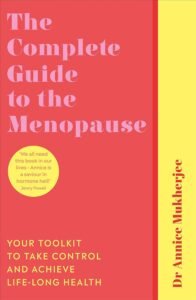Perimenopause Insomnia: Why You Can’t Sleep and What to Do About It
Are you wide awake in the middle of the night, desperately Googling “How to survive perimenopause insomnia?” Yeah, I’ve been there too. It’s like the more you need to sleep, the harder it becomes. Tossing, turning, counting imaginary sheep—and yet sleep feels like a distant dream. But guess what? You’re not alone! This delightful chapter of perimenopause brings with it many surprises, including sleep issues.
So, what’s going on with your body, and how can you finally get the restful sleep you deserve? Let’s dive into it!
The Sleep Struggles of Perimenopause Insomnia
What exactly is stealing your sleep? Oh, just a few usual suspects:
- Night Sweats: You wake up feeling like you’ve run a marathon… except you’ve only been lying in bed. Sound familiar?
- Hot Flashes: One moment, you’re wrapped in your cozy duvet, and the next, it feels like you’re sunbathing in the desert.
- Frequent Wake-Ups: Even when you manage to fall asleep, your hormones have other ideas. Waking up multiple times a night is the new normal, leaving you groggy and frustrated the next day.
Why Hormones Cause Perimenopause Insomnia
Let’s get real. Hormones are the sneaky culprits behind sleep disturbances during perimenopause. Here’s the breakdown:
- Estrogen: As your estrogen levels drop, it triggers night sweats, hot flashes, and even mood swings—all of which can keep you up at night.
- Progesterone: This calming hormone is your sleep ally, but during perimenopause, levels decline, making it harder to stay asleep.
- Cortisol: Stress hormones spike, making it even more challenging to relax and get that sweet, uninterrupted sleep.
How to Sleep Better During Perimenopause
Now for the good stuff—how can you tackle perimenopause insomnia? Here are some tips that can make a real difference:
Create a Sleep Sanctuary
Your bedroom should be a sleep haven. Keep it cool, quiet, and dark. A fan can help circulate air and keep the room comfortable, while also drowning out any distracting noises. And don’t forget breathable bedding to fight off those pesky night sweats.
Establish a Calming Bedtime Routine
Consistency is key. Try to go to bed at the same time every night and wake up at the same time each morning. Create a relaxing bedtime routine—read a book, take a warm bath, or try some light stretching or meditation.
Eat Smart for Better Sleep
What you eat impacts how you sleep. Avoid heavy meals, caffeine, and alcohol close to bedtime—they’re the ultimate sleep robbers. Instead, reach for light snacks that promote sleep, like a banana or some nuts.
Manage Stress and Cortisol Levels
Stress and sleep don’t mix well. Try meditation, deep breathing, or even journaling before bed to ease your mind. Reducing stress helps lower cortisol levels, making it easier for your body to relax into a peaceful slumber.
Natural Remedies for Perimenopause Insomnia: Sleep Solutions that Work
If you’re not keen on medication or simply want to explore natural remedies to improve your sleep during perimenopause, there are several options to consider. These remedies can help you relax, reduce the impact of hormonal fluctuations, and get that elusive good night’s rest.
Melatonin – Your Natural Sleep Hormone
- What it is: Melatonin is a hormone that your body naturally produces, mainly in response to darkness. It helps regulate your sleep-wake cycle, signaling to your brain that it’s time to sleep.
- How it helps: During perimenopause, hormonal changes can disrupt melatonin production, making it harder to fall asleep. Taking melatonin supplements can help reset your internal clock, especially if you find it difficult to fall asleep or wake up too early. It’s often used for jet lag, but can also be a useful remedy for insomnia triggered by hormonal changes. Studies have shown that melatonin not only helps with sleep onset but also improves overall sleep quality.
Valerian Root – Nature’s Sedative
- What it is: Valerian root is an herbal supplement that has been used for centuries to treat sleep disorders. It’s often referred to as a mild sedative because of its calming effects on the nervous system.
- How it helps: Valerian works by increasing levels of gamma-aminobutyric acid (GABA) in the brain, a neurotransmitter that promotes relaxation and reduces anxiety. This is particularly helpful if your insomnia is linked to stress, anxiety, or hormonal fluctuations. Valerian can shorten the time it takes to fall asleep and improve the quality of sleep without causing morning drowsiness. You can take it as a tea, tincture, or supplement, depending on your preference.
Magnesium – The Sleep-Boosting Mineral
- What it is: Magnesium is a vital mineral involved in over 300 biochemical processes in the body, including muscle relaxation and the regulation of the nervous system. Low levels of magnesium are often linked to sleep disorders and insomnia.
- How it helps: Magnesium helps activate GABA receptors in the brain, promoting relaxation and sleep. It also helps regulate melatonin production, enhancing your body’s ability to fall and stay asleep. Many women going through perimenopause experience low magnesium levels, which can exacerbate sleep issues. Taking magnesium supplements or increasing your intake of magnesium-rich foods like leafy greens, nuts, seeds, and whole grains can make a significant difference in improving sleep quality and reducing restlessness during the night.
Lavender – The Calming Herb
- What it is: Lavender is a fragrant herb known for its calming and relaxing properties. It’s been used for centuries to help ease anxiety, improve mood, and promote sleep.
- How it helps: The calming scent of lavender has been shown to reduce heart rate and blood pressure, helping the body relax into a restful state. Lavender essential oil is particularly effective in aromatherapy for sleep—whether you diffuse it in your bedroom, add it to a bath, or spray it on your pillow. Studies have shown that lavender can improve overall sleep quality, particularly in women suffering from insomnia and anxiety. It’s a gentle, non-invasive way to create a peaceful atmosphere and ease into sleep.
Chamomile – The Soothing Sleep Tea
- What it is: Chamomile is another herbal remedy that has been used for centuries to promote relaxation and sleep. Most commonly consumed as a tea, it’s a natural sedative that’s widely recommended for easing anxiety and insomnia.
- How it helps: Chamomile contains an antioxidant called apigenin, which binds to specific receptors in the brain that help decrease anxiety and promote sleep. Drinking a cup of chamomile tea before bed can help relax both your mind and body, making it easier to fall asleep. Chamomile’s mild sedative effects can also help reduce night waking and improve overall sleep quality.
Passionflower – Calming and Sleep-Enhancing
- What it is: Passionflower is another herbal remedy traditionally used to treat anxiety and insomnia. It’s known for its ability to calm the nervous system and promote restful sleep.
- How it helps: Like valerian, passionflower increases levels of GABA in the brain, which helps calm the mind and body. It’s especially useful if your insomnia is linked to stress or anxiety, which can be common during perimenopause. Passionflower can be taken as a tea, tincture, or supplement, and it’s a gentle but effective way to help your body wind down before bed.
Ashwagandha – The Stress-Reliever
- What it is: Ashwagandha is an adaptogenic herb used in Ayurvedic medicine to help the body cope with stress. It’s particularly effective at reducing cortisol levels, which can help balance hormones during perimenopause.
- How it helps: Ashwagandha has been shown to reduce stress and anxiety, making it easier to fall asleep and stay asleep. Its adaptogenic properties help the body adapt to hormonal changes and stress, two major contributors to insomnia during perimenopause. Ashwagandha is available as a supplement, powder, or tea, and can be taken in the evening to help promote calmness and better sleep.
Glycine – The Temperature-Regulator
- What it is: Glycine is an amino acid that plays a role in neurotransmission and sleep regulation. It has a calming effect on the brain and helps regulate body temperature—a crucial factor when dealing with night sweats.
- How it helps: Glycine has been shown to improve sleep quality by lowering core body temperature, which can make it easier to fall asleep and stay asleep. For women experiencing hot flashes or night sweats during perimenopause, glycine can be a game-changer. It’s available as a supplement and can also be found in food sources like bone broth, meat, and fish.
Tryptophan – The Sleep-Inducing Amino Acid
- What it is: Tryptophan is an essential amino acid that your body uses to produce serotonin, a precursor to melatonin, the hormone responsible for regulating sleep.
- How it helps: Eating tryptophan-rich foods like turkey, nuts, seeds, and dairy can help your body naturally produce more melatonin, making it easier to fall asleep and stay asleep. This amino acid can be particularly helpful during perimenopause, when melatonin production often declines.
CBD (Cannabidiol) – The Relaxing Cannabinoid
- What it is: CBD is a non-psychoactive compound derived from cannabis plants. It’s widely used to reduce anxiety, ease pain, and promote relaxation.
- How it helps: CBD interacts with receptors in the brain that regulate mood and sleep, making it a popular remedy for insomnia and stress. It can help reduce anxiety and physical tension, two key factors that interfere with sleep during perimenopause. CBD is available in many forms, including oils, tinctures, capsules, and edibles, allowing you to choose the best option for your needs.
Take Control of Your Sleep Naturally
These natural remedies for perimenopause insomnia are great alternatives if you’re looking to avoid medication or just want to add extra support for your sleep routine. Always consult with a healthcare professional before starting any new supplements, especially during perimenopause, to ensure they’re right for you.
Perimenopause insomnia doesn’t have to control your life. By understanding what’s happening in your body and making a few changes to your routine, you can finally start to get the restful sleep you deserve. Create a peaceful sleep environment, stick to a calming routine, and don’t forget to manage stress.
You’ve got this! Sweet dreams await.
Books on this topic:
References:
- Healthline – Home remedies for insomnia
- Mayo Clinic – “Insomnia: Complementary and Alternative Medicine”































